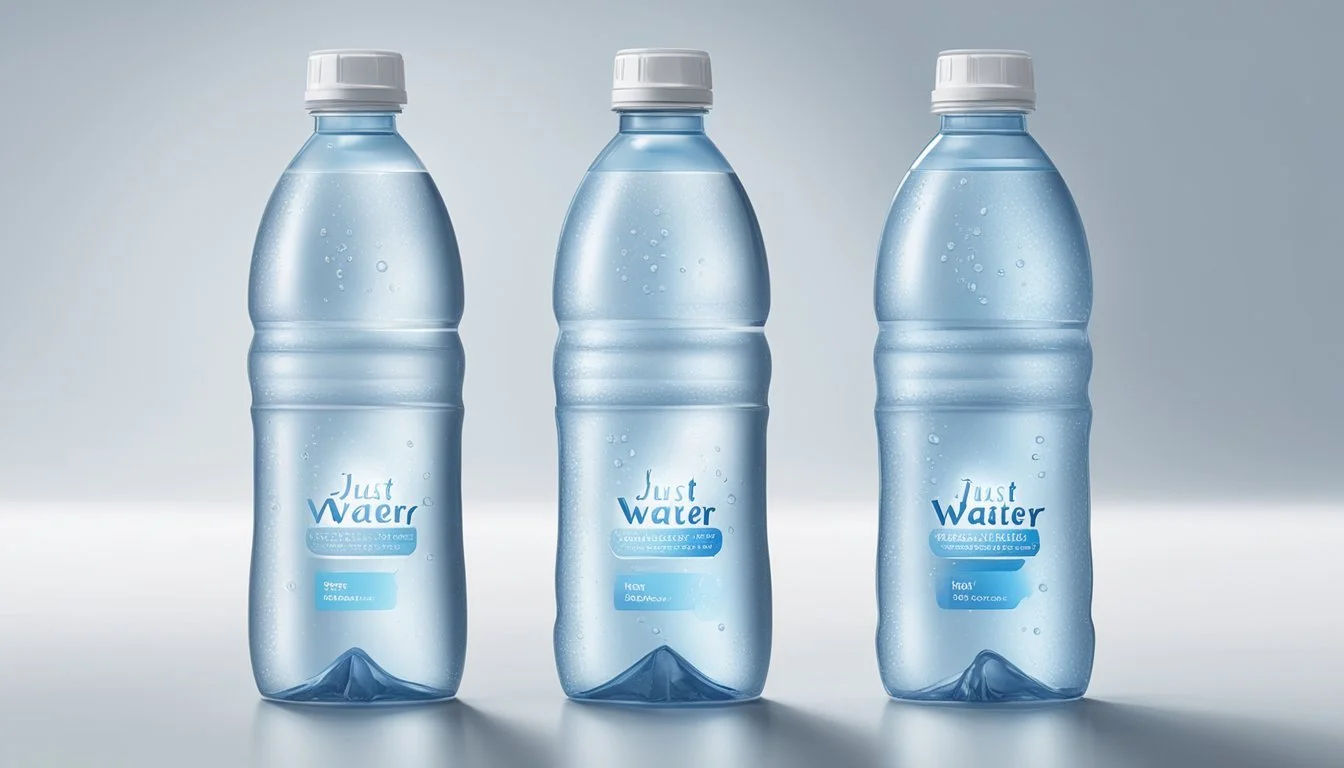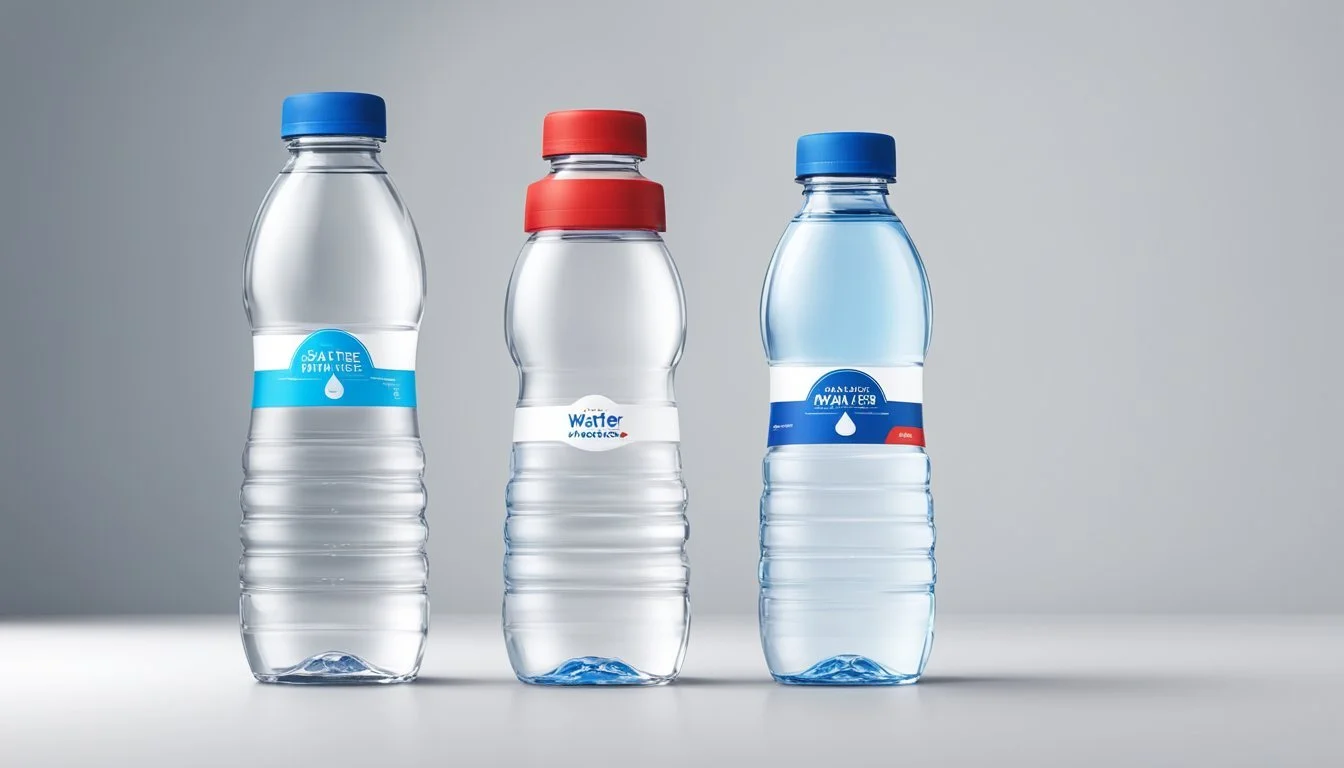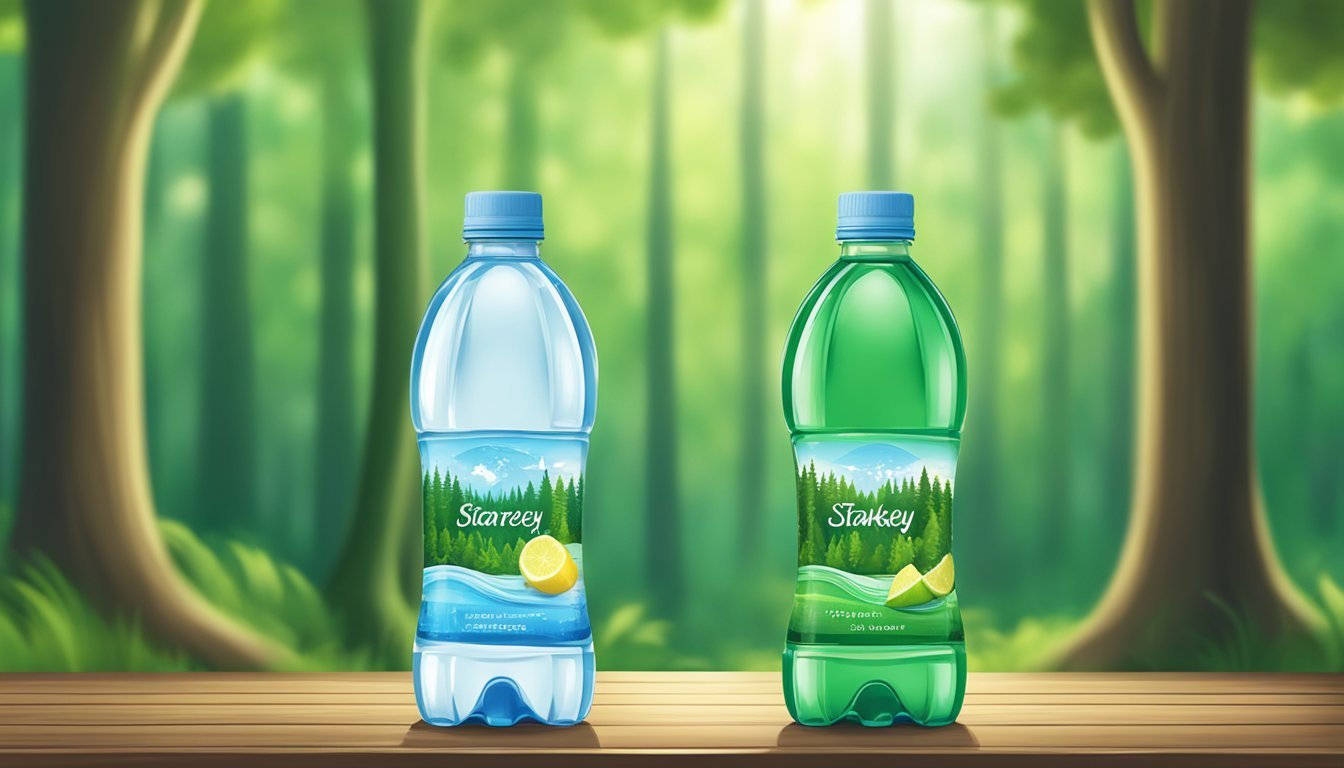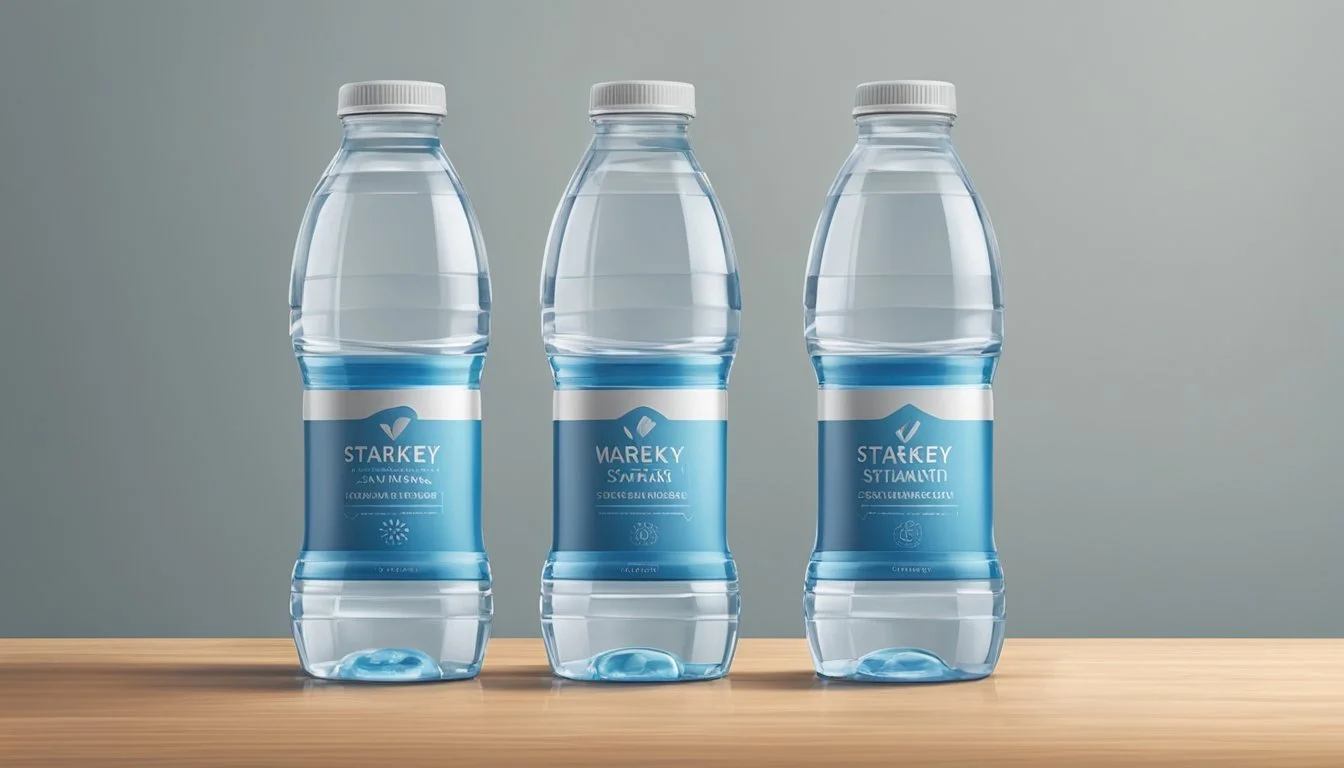Just Water vs. Starkey
Comparing Quality and Taste
When it comes to choosing between Just Water and Starkey, discerning consumers look beyond just taste to factors like sustainability and purity. Just Water, packaged in eco-friendly, paper-based cartons, stands out for its commitment to reducing plastic usage. Starkey, sourced from geothermal springs in Idaho, offers naturally occurring minerals that appeal to those seeking a premium hydration experience.
Just Water not only appeals to environmentally-conscious buyers but also provides a clean, smooth taste that many find refreshing. Starkey, on the other hand, presents a unique, velvety texture with a slight mineral aftertaste, catering to those who appreciate a distinct flavor profile in their water.
The choice between Just Water and Starkey ultimately depends on personal preference and values. Both brands deliver high-quality drinking water, but if sustainability is a top priority, Just Water is the clear winner. For those who prefer a mineral-rich taste, Starkey might be the better option. The following detailed comparison will help you decide which brand aligns best with your hydration needs.
Understanding Bottled Water
Bottled water comes in various categories, each with distinct sources and processes. This section also delves into environmental ramifications and health considerations tied to bottled water consumption.
Categories of Bottled Water
Bottled water includes several types based on origin and treatment processes. Spring water is sourced from natural springs, often praised for its purity. Mineral water contains specific minerals, making it a popular choice for those seeking added health benefits.
Purified water undergoes treatment processes like distillation, reverse osmosis, or deionization to remove impurities. Artesian water is extracted from confined underground springs. Bottled water packaging varies greatly, with options like plastic bottles, glass bottles, and cartons, each influencing the water's taste and environmental footprint.
Environmental Impact of Bottled Water
Bottled water has significant environmental impacts, mainly due to packaging and transportation. Plastic bottles contribute to pollution and are often non-biodegradable, adding to landfill waste and oceanic debris. Glass bottles, while reusable and recyclable, require substantial energy to produce and transport due to their weight.
Carton packaging, made from paper and sometimes sourced from sustainable forests, offers a more eco-friendly option but still involves processing and transportation emissions. The overall carbon footprint of bottled water includes the energy used in extraction, processing, and delivery, highlighting a need for more sustainable practices and packaging options.
Health Considerations in Bottled Water
Health considerations for bottled water often revolve around safety and purity. Bottled water is subject to regulations ensuring it is safe to drink, but standards can vary by region. Some bottled water, despite being labeled as purified or spring water, may still contain trace amounts of contaminants.
Mineral water provides essential minerals like calcium and magnesium, which can be beneficial, but excessive consumption might lead to an imbalance in mineral intake. The choice of packaging also affects health; plastic bottles can leach harmful chemicals, particularly when exposed to heat, whereas glass and carton options typically offer safer alternatives.
Brand Profiles
Comparing Just Water and Starkey reveals differences in sourcing, packaging, and taste profiles. Other brands like Boxed Water, Essentia, Fiji, Evian, Aquafina, and Smartwater also have unique attributes worth considering.
Just Water
Just Water is notable for its plant-based packaging and affordability. The water is sourced from Glen Falls, New York, emphasizing sustainability and environmental responsibility.
The packaging uses 54% paper and 28% plant-based materials, reducing the reliance on plastic. This appeals to environmentally conscious consumers.
Just Water’s taste is clean and crisp, thanks to its alkaline properties and pH balance of 8.0. This makes it a favorite among those seeking both health benefits and eco-friendly options.
Starkey
Starkey comes from a geothermal spring in Idaho, offering a unique taste experience. Known for its mineral-rich content, it has a distinct, almost savory flavor.
This bottled water stands out for its thick texture and unusual taste. It's polarizing among consumers—some love its bold profile while others find it too intense.
Starkey positions itself as a premium brand, emphasizing its unique source and mineral content, which appeals to a niche market of water enthusiasts.
Competitor Comparison
Emphasizes 92% renewable packaging.
Competitively priced and eco-friendly.
Essentia
Known for its ionized alkaline water,
pH of 9.5, which some believe boosts hydration.
Fiji
Sourced from artesian aquifers in Fiji,
Filters through volcanic rock for a smooth taste.
Evian
Comes from the French Alps,
Renowned for its natural mineral balance.
Aquafina
Purified through a rigorous seven-step process,
Typical choice for mainstream consumers.
Smartwater
Distilled with added electrolytes for taste,
Popular among athletes and health-conscious individuals.
When comparing Just Water and Starkey to these competitors, distinct differences in source, packaging, and taste stand out, providing options for a range of consumer preferences.
Quality and Taste
The key aspects to consider are the sources of the water, the taste characteristics, and the reliability of quality reports. Each factor plays a significant role in determining the preference between Just Water and Starkey.
Water Source and Quality
Just Water sources its product from natural springs located in the Glens Falls watershed in the Adirondack Mountains. This area is known for its pristine environment, contributing to the overall purity of the water.
Starkey, on the other hand, is sourced from a thermal spring in Idaho. This spring provides alkaline water with a pH of 9.6, which some consumers prefer due to its perceived health benefits. Both brands emphasize their commitment to sustainability, with Just Water using a significant portion of renewable resources for their packaging.
Taste Profiling and Preference
Just Water has a clean and crisp flavor, favored for its subtlety and lack of aftertaste. The water contains a balanced profile of minerals which contribute to a slight but refreshing taste.
Starkey offers a more distinctive taste due to its high mineral content and alkaline nature. Consumers who prefer alkaline water often note the smooth, almost sweet undertones of Starkey. Taste tests tend to show a divide; those who prefer a neutral, no-fuss water lean towards Just Water, while those seeking a distinct, mineral-rich flavor might choose Starkey.
Trust and Quality Reports
When it comes to trustworthiness, Just Water and Starkey provide comprehensive quality reports. Just Water subjects its products to rigorous testing for contaminants, ensuring they meet safe drinking water standards.
Starkey also publishes detailed quality reports, but an incident in 2017 where slightly elevated levels of arsenic were found has led to a more cautious consumer base. Despite the incident, Starkey has taken steps to ensure that their water consistently meets high safety standards, and recent tests have verified that the product is safe for consumption. Both brands maintain transparency in their quality control processes, giving consumers confidence in their products.
Packaging Innovations
The bottled water industry has seen various advancements in packaging aimed at sustainability, reducing single-use plastics, and increasing recyclability.
Sustainable Packaging Solutions
Just Water uses a carton made primarily of renewable resources. The carton is composed of 82% plant-based materials, including paper and a bio-plastic cap derived from sugarcane. This innovation helps reduce the dependence on traditional plastics.
Starkey, on the other hand, opts for a more conventional approach with plastic bottles. Though convenient, these tend to have a higher environmental impact. Efforts to include recyclable materials in the plastic composition show some progress, but they don't match the renewability of Just Water's plant-based solutions.
Boxed water and similar products combine materials like paper, plastic film, and aluminum. This mixture creates a packaging that is not only eco-friendly but also practical for storage and transport. However, the plastic film, despite being a small component, is not as easily recyclable as the rest of the materials.
Recyclability and Reusability
Just Water’s packaging is designed to be recyclable in systems that handle mixed materials. The bio-plastic cap and paper-based carton can be processed similarly to traditional materials, though not all recycling facilities are equipped for this.
Starkey focuses more on traditional plastic bottles, which, if disposed of correctly, can be recycled into new products. Yet, the rate of recycling for plastic bottles remains lower compared to other materials. Encouraging consumers to opt for reusable water bottles made from stainless steel or plant-based plastics could significantly reduce waste.
Aluminum and stainless steel are also noteworthy materials in the context of reusability. They are durable and can be recycled indefinitely without loss of quality. Implementing these materials more broadly in water bottle packaging could enhance both sustainability and practicality, fostering a more eco-friendly future.
Consumer Experience
Consumers value bottled water for its convenience, affordability, and brand image. The following sections explore how Just Water and Starkey compare in these critical areas.
Convenience and Lifestyle
Just Water, with its paper-based carton and sugarcane-based cap, caters to eco-conscious consumers prioritizing sustainability. This design is both lightweight and easy to carry, making it a convenient choice for on-the-go consumption.
Starkey, on the other hand, offers standard plastic bottles, which are familiar and widely accepted. These bottles are easily found in many grocery stores and vending machines, enhancing their accessibility.
Both brands aim to meet lifestyle needs, but the packaging choices distinctly target different consumer priorities.
Pricing and Affordability
When it comes to price, Just Water tends to be positioned as a premium product. Its commitment to sustainable packaging and sourcing adds a slight markup compared to typical bottled waters.
Starkey, often found in popular grocery chains, is generally priced more competitively, appealing to budget-conscious shoppers. Its wide availability means frequent promotions and discounts.
Price points for both can vary based on location and store. Just Water's premium pricing reflects its brand values, while Starkey's affordability broadens its consumer base.
Brand Perceptions and Partnerships
Just Water has established strong partnerships with notable eco-friendly initiatives and companies like Alaska Airlines, enhancing its image as a sustainable and innovative brand. This broadens its appeal among consumers who prioritize environmental responsibility.
Starkey is linked less with environmental causes and more with its origins, drawing from a deep-water aquifer. This branding emphasizes purity and natural sourcing. Partnerships for Starkey are less pronounced, focusing more on distribution through major grocery chains.
Consumers perceive Just Water as a trendsetter in sustainable practices, whereas Starkey is viewed as a reliable, pure source of hydration. Both brands maintain distinct images that resonate differently within their markets.
Health and Safety
Both Just Water and Starkey offer promising health benefits and adhere to safety standards, but there are differences in hydration benefits, chemical components, and regulatory certifications.
Hydration and Health Benefits
Just Water is notable for its plant-based packaging and hydration benefits. It provides essential minerals and electrolytes that can aid in maintaining proper hydration.
Starkey water, sourced from geothermal springs, is also rich in minerals. This can help balance the body’s pH levels and support overall well-being.
Both brands are effective for regular hydration needs, supporting optimal physical performance and cognitive function.
Chemicals and Contaminants
Just Water utilizes plant-based packaging to reduce plastic exposure. It has lower levels of contaminants due to its strict filtration processes.
Starkey has faced scrutiny in the past for higher levels of arsenic compared to other bottled waters. Despite this, it meets the Environmental Protection Agency (EPA) standards for safe drinking water.
Consumers should be aware of potential chemical exposures and check lab reports for peace of mind.
Safety Certifications and Regulations
Just Water complies with Food and Drug Administration (FDA) standards and adheres to the Environmental Working Group (EWG) guidelines.
Starkey is sourced from protected geothermal springs and follows FDA regulations.
Both brands meet the necessary certifications for bottled water safety in the United States, ensuring their products are safe for consumption by adults and children. However, the history of scrutiny regarding Starkey’s arsenic levels warrants extra attention.
Choosing between Just Water and Starkey for safety reasons will depend on individual preferences and any specific health concerns. Both brands demonstrate a commitment to providing safe, clean drinking water under current regulations.
Environmental Considerations
Choosing between Just Water and Starkey involves understanding their environmental impact, including packaging materials, waste generation, and sustainability initiatives.
Reducing the Ecological Footprint
Just Water utilizes cartons made from 54% paper sourced from sustainable forests. The cap is made of plant-based plastic derived from sugarcane. This combination significantly reduces their ecological footprint compared to traditional plastic water bottles.
Starkey, on the other hand, uses plastic bottles that contribute to higher carbon emissions during production. Though their bottles are recyclable, they still depend on fossil fuels. Reducing reliance on such materials is crucial to minimizing global warming impact.
Boxed Water and similar products also focus on minimizing environmental impact by using more sustainable packaging.
Confronting Plastic Waste
Plastic waste remains a major global challenge. Just Water’s use of plant-based plastic for caps and primarily paper-based cartons signifies a step toward reducing plastic waste. These materials are easier to recycle and break down faster than conventional plastic.
Starkey’s bottled water, despite being recyclable, contributes to the massive amount of plastic waste plaguing landfills and oceans. Microplastics from these bottles can enter ecosystems, causing long-term environmental damage.
To combat this, eco-friendly alternatives like canned water and boxed water are gaining popularity for their lower plastic content.
Green Initiatives and Carbon Footprint
Green initiatives are at the core of Just Water’s mission. Their cartons are sourced from sustainable forests, and the company emphasizes a lower carbon footprint by using plant-based materials. They also strive for transparency, avoiding greenwashing tactics.
Starkey lacks such intensive green initiatives, focusing more on traditional recycling programs. Without significant steps towards sustainability, their carbon footprint remains substantial.
Just Water’s commitment to using plant-based materials and recyclable cartons demonstrates a clear effort to lessen environmental impact, making it a more sustainable choice in comparison.
Market and Trends
Understanding the bottled water market's dynamics is crucial to evaluating the competition between Just Water and Starkey. The consumer preferences and innovations in packaging play a significant role.
Consumer Trends and Preferences
The bottled water market exhibits notable trends driven largely by health and environmental concerns. In 2023, the U.S. bottled water market was valued at USD 44.6 billion, growing consistently at 5.8% annually. Consumers increasingly seek sanitary and health-conscious options due to issues like gastrointestinal disorders from contaminated water.
Among consumer preferences, there is a noticeable shift towards single-serve, conveniently packaged bottled water. In 2022, single-serve bottled water dominated with nearly 71% of volume sales. Preferences are also skewing towards more sustainable and eco-friendly packaging, influencing brands like Just Water, which uses recyclable materials.
Innovations and Future Directions
Innovations in the bottled water industry center around sustainability and enhanced consumer experience. Brands like Just Water are pioneering eco-friendly packaging, offering water in recyclable, paper-based cartons, which appeals to environmentally conscious consumers.
Flavored water is another area of innovation, addressing the demand for palatable and varied drinking options. As the competition intensifies, companies focus on distinct source origins and branding to stand out. Tracking these innovations gives insight into future market directions, where sustainability and consumer preferences drive growth and product development.
Conclusion
JUST Water stands out with its commitment to sustainability. The brand uses plant-based packaging, reducing environmental impact. The water itself is priced competitively, making it an attractive option for the environmentally conscious consumer looking for a cost-effective alternative.
Starkey, on the other hand, offers a unique tasting experience. It has a distinctive, almost savory flavor that some find intriguing. This makes it a suitable choice for those who are seeking a specific taste profile rather than just hydration.
When considering contaminants, a study revealed that many bottled waters, including major brands, often contain various impurities. Consumers might want to investigate the purity levels of these brands more closely.
Price Comparison:
JUST Water: Economical option
Starkey: Premium pricing aligned with its unique taste
Both brands have their strengths. JUST Water excels in sustainability and cost-efficiency, while Starkey appeals to those craving a unique taste. The decision should hinge on personal priorities—environmental impact and cost, or taste and brand prestige.
More About Just Water
Core Hydration vs Just Water: Which Bottled Water is Better?
Icelandic Glacial vs Just Water: Which Bottled Water is Better?
Just Water vs Aqua Carpatica: Which Bottled Water is Better?
Just Water vs Cascade Mountain: Which Bottled Water is Better?
Just Water vs Crystal Geyser: Which Bottled Water is Better?
Just Water vs Hawaii Volcanic: Which Bottled Water is Better?
Just Water vs Hawaiian Springs: Which Bottled Water is Better?
Just Water vs Kirkland Signature: Which Bottled Water is Better?
Just Water vs Mountain Valley Spring Water: Which Bottled Water is Better?
Just Water vs Nestle Pure Life: Which Bottled Water is Better?
Just Water vs Richard's Rainwater: Which Bottled Water is Better?
Just Water vs San Pellegrino: Which Bottled Water is Better?
Just Water vs Solan de Cabras: Which Bottled Water is Better?
Just Water vs Talking Rain AQA: Which Bottled Water is Better?
Just Water vs Whole Foods 365: Which Bottled Water is Better?
Just Water vs Whole Foods Italian Still Mineral water: Which Bottled Water is Better?
More About Starkey
Icelandic Glacial vs Starkey: Which Bottled Water is Better?
Mountain Valley Spring Water vs Starkey: Which Bottled Water is Better?
Starkey vs Kirkland Signature: Which Bottled Water is Better?
Starkey vs Richard's Rainwater: Which Bottled Water is Better?
Starkey vs Whole Foods Italian Still Mineral water: Which Bottled Water is Better?






